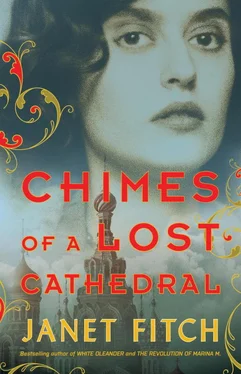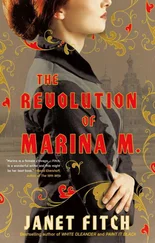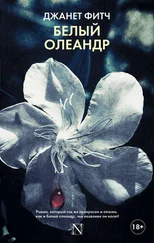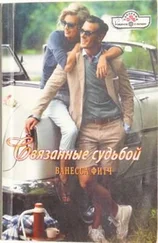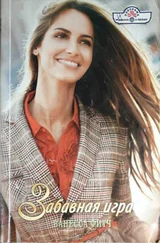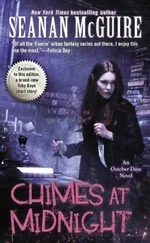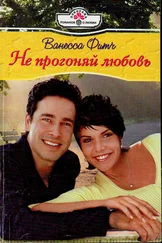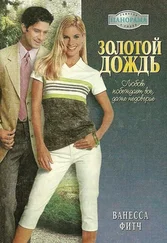Fortunately or unfortunately, I rarely had a spare moment. Korsakova ran the place like a German. Monday was laundry, Tuesday the floors, Wednesday the windows, Thursday the stairs, and so on. When I wasn’t scrubbing pine floors with lye soap or boiling acres of laundry, hanging hectares of heavy corduroys in the kitchen, making beds or roasting kasha or grinding oats or peeling potatoes, I was standing in miles of queues for bread and flour and fuel and matches, and Liza’s milk ration. Was I complaining? Not I. Our tenants’ Vikzhel rations were generous, first category. They even got fabric and galoshes—theoretically. I ate like a queen—at least a Soviet one.
This was my life. I had no friends besides thirteen-year-old Liza, Styopa Radulovich, and the other boarders. I avoided befriending the women in the queues. It was a gossipy town and they asked all kinds of pointed questions about Korsakova and Liza and the wayward Yulia. You couldn’t give women like that a toehold. Oh, the hours of listening to their chatter! Whose daughter was sleeping with soldiers behind the barracks for a piece of their Red Star rations. Whose daughter had been raped last Tuesday and left for dead. She never could identify the rapist. They wanted to know things about me, where I was from, did I have a sweetheart. It made me wonder why they didn’t join the Cheka if they liked interrogation so much.
So although I was lonely enough to howl, I kept to Liza and the guests.
Spring crept closer, then arrived, turning the world to mud. The unpaved roads transformed themselves into deep brown rivers. Icicles crashed from eaves of the wooden buildings, and now the poor city folk had to struggle ankle-deep in mud with their offerings, their patched clothes spattered with Tikhvin. Workers with their sad plunder, and out-and-out bagmen groaning under huge sacks of flour and potatoes, headed for the station, where they’d boldly load the bumpers between cars for the trip back to Petrograd. The air crackled with anxiety—anyone could be shot for speculation, and yet, no one could survive without it.
I put off registering my presence with the authorities. The more invisible my document-poor life, the better. But eventually, Korsakova too was visited by the local Chekists. Searching—for what, food, weapons, counterrevolution? Or more likely, just to harass the Vikzhel men. Trade unionists tended not to be Communists. Everyone was turned out of bed—the railwaymen, Raisa Filipovna. Every room had to be searched, even the little girlish one at the top of the stairs.
Luckily we heard them beating on the front door. I turned on the lamp. “Liza,” I whispered. “I need to hide something.”
She sat up, her innocent face eager for secrets, her hair all tangled above her braids, as fine as thistle floss. I reached under my mattress and showed her the bundle of cloth in which I’d wrapped the ugly hunk of metal that had taken Andrei’s life. “Is it a gun?” she whispered excitedly.
I could hear the men arguing downstairs now. Trade unionists and Bolsheviks made a volatile mixture. “I’m sorry, I was traveling. I didn’t think—” Strangely, I’d forgotten there was an outside world, with Chekists combing every corner for counterrevolution.
Liza jumped out of bed and knelt, scrabbling at the floorboards under her bed with her fingernails. She pulled up a board, grinning. I saw something pink in there—a blouse? And books! I’d forgotten, children were natural spies, they always had their secrets. I threw the gun in with them and she quickly replaced the plank.
We could hear furniture crashing on the second floor, men shouting. Liza rounded her eyes at me, her sharp little chin, her blankets up around her neck. “They’re coming.”
“Don’t worry, they’re not looking for schoolgirls.”
The search was messy and frightening. They finally reached the third floor, burst through our crooked door. Liza and I clung to each other as a flat-cheeked dullard with pale blue eyes searched our room, pulling the mattresses off the beds and the drawers from the chest, making a great racket as the men shouted on the floor below. I was as frightened as Liza, but trembling as I was, I noticed the search wasn’t as careful as Varvara’s would have been. He didn’t even look behind the lubok print of the Donkey, the Bear, and the Fox, or run his hands over the wallpaper, feeling for seams, let alone check for loose floorboards. I could have hidden half the Committee for the Salvation of the Fatherland in here and he would have missed them. They had no idea what they were looking for, just throwing their weight around to terrorize the populace.
They herded us down to the dining room and made everyone produce their papers, and thus I was found out. No labor book. No travel propusk, no registration with the housing committee. It was a problem for both me and the widow.
Styopa Radulovich in his nightshirt, his thick strong hairy legs. “Doesn’t the Cheka have anything better to do than harass housemaids?”
“Tell us why we shouldn’t arrest her right now,” said the Chekist in charge, a lean small man with one drooping eye. “And you too.” He turned his good eye on Styopa and the bantam and the mechanic Berkovin. “I don’t like the looks of any of you. You Vikzhel men are getting too big for your pants.”
“She’ll come tomorrow,” said Korsakova, deflecting the attention from her precious boarders. “I’ll make sure of it, Comrade. You have my word.” She was as white as white paint, there in her dark shawl and her nightgown.
“We know where you live,” said the lead man. “All of you.” They left with a great clattering on the bare wooden stairs, a crash as they knocked one of the prints down. The statement hung in the air long after they’d gone.
The Tikhvin Soviet was housed in a fine yellow building on Svobodnaya Square, a surprisingly elegant structure. Clearly Tikhvin had once been an important commercial center before its present decline. I languished there for most of the day, standing in long queues, leaning against the walls, my ankles and calves killing me. People coughed, they scratched surreptitiously. Would I be able to get papers as a proletarian this time? Marina Kuriakina? Allowing me a life of some kind or condemning me forever—no rations, my child permanently branded as a member of a counterrevolutionary class. Or would I simply be arrested, taken away to some Cheka cell? I couldn’t bear that again, not ever.
Dusk had gathered outside the windows by the time I received my permission, my propusk, to move to the desk at which I would receive my labor book. I didn’t complain—I just prayed I wouldn’t have to come back tomorrow. Propusk in hand, I approached the wooden desk of a humorless woman behind a typewriter and, more importantly, the tray bearing its array of precious rubber stamps. After standing all day, my legs felt like watermelons, my ankles like logs. There was only one chair and the woman was sitting in it. Her mouth was wide but pinched, it looked like her teeth hurt her.
Slowly, carefully, I answered her questions. Sticking to the truth in all the small details, lying only in the large ones.
Familia:
Kuriakina.
Imia:
Marina.
Otchestvo:
Dmitrievna.
Mesto Rozhdenia:
Petrograd.
Data Rozhdenia:
3 February 1900
Obrazovanie:
Primary.
Professia, spetsialnost:
General Labor.
Klass:
Proletarian.
Semeinoe Polozhenie:
Читать дальше
